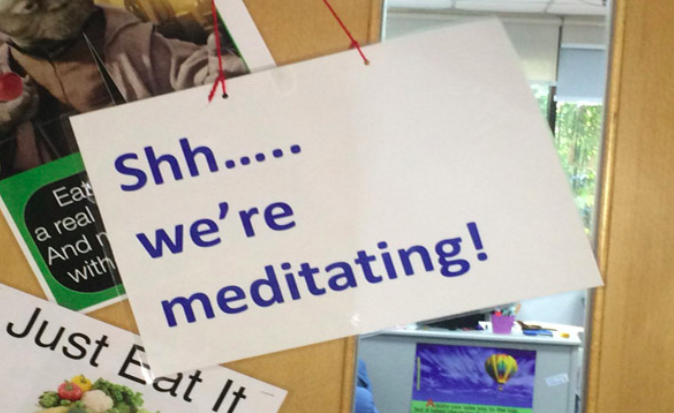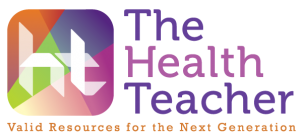“OK, I get it. The kids need to meditate… but how does that work, exactly?”
We live in some hyper-connected times; stress levels are on the way up as attention spans are on the way down. Equipping students with the skills needed to slow down and be mindful can help them as they struggle to find focus and calm in a world full of constant distractions.
Last year, after learning about the powerful impact meditation was having on students at Visitacion Valley Middle School in San Francisco, we decided to give it a try in our health classes. Since we didn’t have time to implement the full Quiet Time program that they use, we started with a modified version, doing five minutes at the beginning of each class. The feedback from the kids was fantastic and you could really notice a shift in the energy after they were done.
In the second semester, we wanted to try a more structured approach, so we started using Smiling Mind, a free online resource from Australia. It’s a guided program, broken down by age range, and takes the kids through ten different levels, with meditations ranging from anywhere between 5-7 minutes long. It’s great for anyone who is just beginning their practice, and it’s an amazing tool for teachers as well. All you need to do is press play and find a spot on the floor. The students can also create their own accounts so they can do the exercises at home.
At first, the idea of meditation might seem a little strange to the kids, so we introduce the concept by showing them this short TED talk by Andy Puddicombe, founder of Headspace.
He does an excellent job of explaining what mediation is in a way that kids can understand. Headspace is also a great app to use, but after you get to a certain level, you need to pay to use the program, whereas Smiling Mind is completely free.
Another new one is Stop, Breathe & Think by Tools for Peace. It’s nice for the older kids in that it’s broken down by intent – compassion, welcoming the day, dealing with anxiety — and has a timer for silent meditations, which they really enjoy.
Starting a meditation practice might seem daunting, but with so many tools like this available online, any classroom teacher can implement their own practice right away. On Edutopia, there is even a bank of downloadable resources, including a letter to send home and a primer for teachers.
Middle school boys can be some of the most resistant, so try a little positive peer pressure and show them this clip from ESPN news about mindfulness in the NBA. When I shared it with my kids, they were able to come up with some great connections as to how meditation can help athletic performance, and a few of them even tried the Smiling Mind Sports Program at home.
The growing body of research is impressive, and this article from the SF Gate highlights even more positive ways that meditation is impacting kids, especially in some of the tougher areas. Truancy and suspension rates are down, test scores are up, and most importantly, these kids have a healthy coping skill that they can use for life.
“Remarkably, in the annual California Healthy Kids Survey, these middle school youngsters recorded the highest happiness levels in San Francisco.”
Happier middle school kids? I think that’s something we can all get behind.
Still not convinced? Check out this infographic: The Skeptics Guide to Meditation
Next week: Mental Health — the latest tools, resources and lessons to support your curriculum… and your students.




